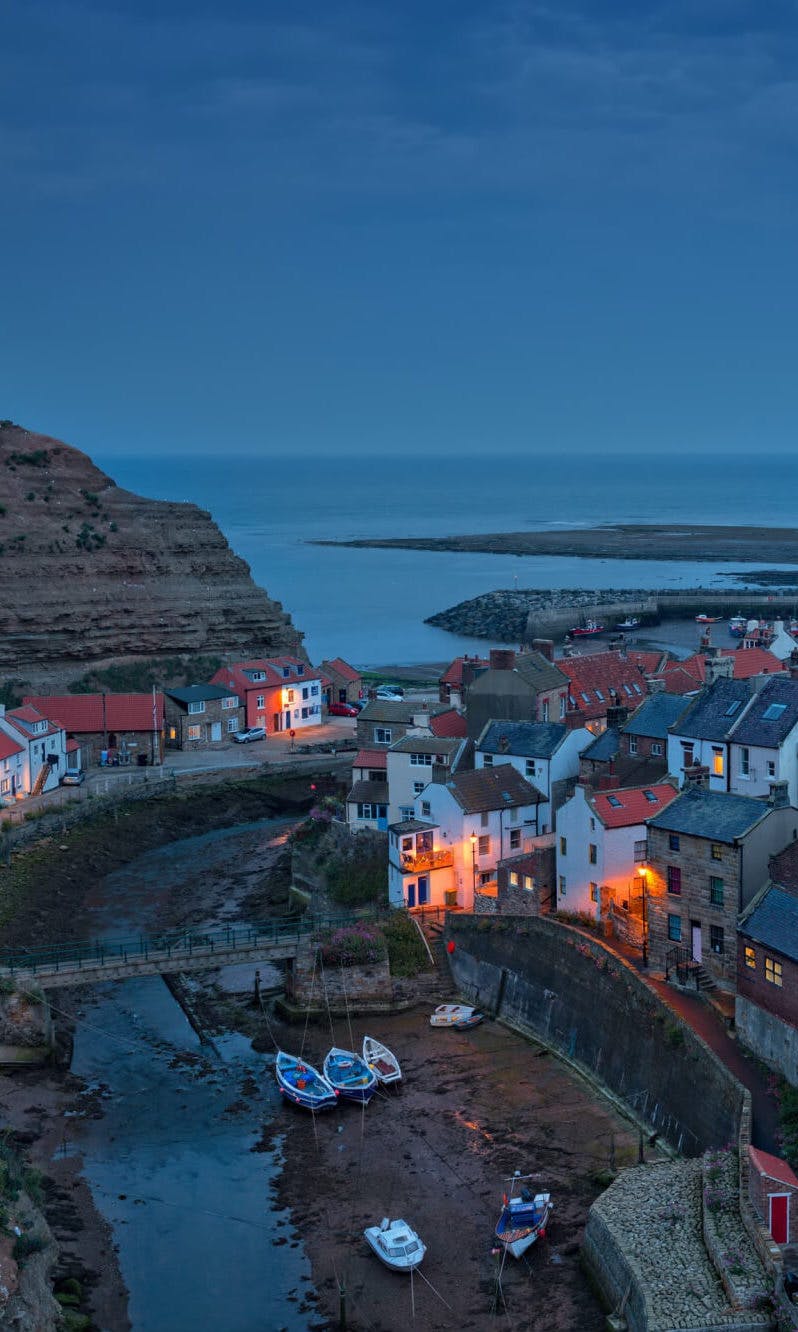Share
December 2024
Charting a new energy future for the UK’s industrial heartlands
The British energy transition is a story of communities reinventing themselves. Discover how coastal hubs are balancing tradition with innovation to shape a more sustainable future
ReadDecember 2023
The Energy Trilemma: How energy policies can cut emissions and bills
Policy makers must ensure their decisions tackle climate change, keep energy prices down and keep the lights on. What are the best solutions to meet these demands?
ReadNovember 2023
Lighting up the UK: Where does our energy really come from?
Energy drives our lives, but where does it come from? Scroll down to explore the sources of energy you tap into during your day.
ReadNovember 2023
How can hydrogen power the UK's net zero ambitions?
Hydrogen is often touted as a solution to help decarbonise parts of the economy, but government support is vital for theory to become reality.
ReadAugust 2023
Powering up the world's largest offshore wind farm
When completed, Dogger Bank Wind Farm will supply 5 per cent of the UK's electricity needs, equivalent to powering five million British homes
WatchAugust 2023
Financing the transition to Net Zero
Allowing capital flows consistent with a net zero and resilient global economy will require a transformation of the financial system.
ListenMay 2023
Quiz: test your knowledge of the energy transition
Some of the greatest minds on the planet are struggling with ways to improve energy security, affordability and sustainability. How good is your knowledge?
ReadMay 2023
How will the UK achieve net zero?
The energy transition is key to a low carbon future. What are the opportunities and challenges facing the UK today and what needs to be done?
WatchJuly 2022
Understanding carbon capture and storage
Despite the sceptics, CCS is set to play a vital part in helping the world’s economies reach net-zero carbon emissions
ReadFebruary 2022
The Next Five Podcast: the future of energy
Top industry experts discuss fusion and hydrogen potential to hit net zero
WatchFebruary 2022
How to power the planet while lowering the carbon footprint
With innovative technologies and commitment to net zero, reducing emissions is possible
WatchJanuary 2022
The collaborative energy transition in the UK
The UK’s climate change targets require a coordinated transition to reach net zero by 2050. For Britain to become a low carbon economy, businesses and government must work together.
WatchJanuary 2022
Hydrogen in the Humber: decarbonising the UK’s largest industrial emitter of CO2
The Humber region is the UK’s largest emitter of CO2, with 37 per cent of CO2 emissions from the UK’s six largest industrial clusters coming from the Humber. Equinor and the Zero Carbon Humber partnership aims to build the world's first net zero industrial cluster by introducing a new Hydrogen economy to the region.
WatchDecember 2021
Carbon removal and reduction: Maintaining Earth's natural cycle
From natural CO2 sinks to carbon capture and storage projects, these are solutions that can help meet net zero targets.
WatchNovember 2021
Northern Lights: crunching the numbers on carbon storage
Putting CO2 back in the ground will be key to meeting UK climate targets. So how does one of the world's most ambitious carbon transport and storage projects measure up?
ReadNovember 2021
Next step net zero: How UK hydrogen project could decarbonise industrial heartland
Equinor and its Zero Carbon Humber Partnership is tackling the UK's carbon intensive industrial heartland, in turn opening the door for a European hydrogen economy.
WatchSeptember 2021
Living la vida verde: energy ecosystems in the UK
The transition to a renewable future is a journey we are all on together. Reporter Tom Parker travels to Northumberland before the UK’s largest offshore wind farm opens in 2023 to see the positive impact that the energy transition is already having on our communities.
WatchSeptember 2021
Floating offshore wind: a fix for the future energy mix
20 years ago, turbines that float out at sea was just an idea. Now a reality, Equinor’s Hywind Scotland has positioned the UK as a global leader. With larger projects on the horizon, reporter Tom Parker looks at how floating offshore wind could help decarbonise the world’s power supplies.
WatchJune 2021
World’s first net zero cluster
An ambitious plan led by Equinor and its Zero Carbon Humber partners is underway to transform the region's carbon-intensive industries into the world's first net zero industrial hub. In turn it will unlock a new cutting-edge hydrogen economy that will play a major role in helping the UK reach net zero.
WatchMay 2021
The challenging journey to net zero
Becoming a net zero economy by 2050 will require a complex effort over the next thirty years. How can the UK deliver that transition?
ReadApril 2021
Will Carbon Capture and Storage provide the solution to decarbonise important industries in Britain?
Carbon Capture and Storage (CCS) is a vital technology that captures CO2. and stores it safely underground. For the UK, CCS will have to play a key role if it is to become a net zero emissions economy by 2050.
WatchApril 2021
From oil rigs to carbon storage: a personal account of working in the energy transition
With Britain heading for a net zero economy by 2050, what is it like to be working in the energy sector as the UK transitions to a renewable future? Equinor employee, Dr Peter McFadzean discusses his transition from Oil and Gas to Carbon Capture and Storage solutions.
WatchJanuary 2021
Full blown: building the world's largest offshore wind farm in the UK
Construction has begun on the world’s largest offshore wind farm off the east coast of England in the North Sea. When fully operational in 2026, Dogger Bank Wind Farm will produce enough renewable electricity to supply five per cent of UK’s demand and power around five million homes each year.
ReadDecember 2020
The future is afloat
The UK government wants every home to be powered by offshore wind in 2030. Reporter, Juliet Mann, explores how floating offshore wind technology pioneered by leading energy provider, Equinor, is essential in helping the UK reach this ambitious target.
WatchNovember 2020
There will be no net zero without carbon capture and hydrogen
Hydrogen will be crucial if the UK is to meet its 30-year target of bringing greenhouse gas emissions to net zero. In order to cut emissions, we will need to create a hydrogen economy, and for the hydrogen economy to succeed, Carbon Capture and Storage (CCS) is essential.
Read
